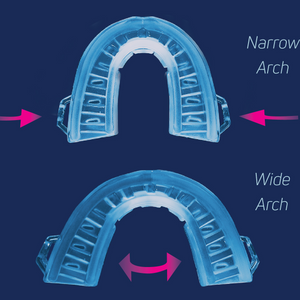Sep 12, 2025
ARE SOLDIERS ABLE TO SLEEP WITH “ONE EYE OPEN?”
ARE SOLDIERS ABLE TO SLEEP WITH “ONE EYE OPEN?”
Sort of. The phrase “sleeping with one eye open” is mostly metaphorical, especially in military contexts. It refers to maintaining a heightened state of alertness even while resting. The following shows how it plays out in reality.
WHAT IT REALLY MEANS
Hypervigilance: Soldiers, especially those in combat zones or Special Forces, often train to sleep lightly—ready to wake at the slightest sound or movement.
Micro-sleeping: In high-stress environments, rest often comes in short bursts. Soldiers may nap in shifts, boots on, gear ready, with their senses still partially engaged.
Combat conditioning: Over time, some develop the ability to wake instantly and respond quickly, even from deep sleep. It’s not about keeping an eye physically open—it’s about mental readiness.
CAN YOU SLEEP WITH ONE EYE PHYSICALLY OPEN?
Rare but possible: Some people (due to medical conditions like nocturnal lagophthalmos) can sleep with their eyes partially open. But this isn’t common or intentional in the military.
Not encouraged: Military regulations emphasize vigilance and discipline. Trying to fake alertness while sleeping—like keeping eyes open—is considered deceptive and can lead to serious consequences.
Soldiers don’t literally sleep with one eye open, but they do train to rest in ways that keep them semi-alert and ready to respond. It’s more about mindset and conditioning than eye muscles.
WHAT ABOUT ANIMALS?
Nature’s light sleepers: some animals truly can sleep with one eye open, thanks to a fascinating adaptation called unihemispheric slow-wave sleep (USWS). This allows one half of the brain to rest while the other stays alert, keeping one eye open to monitor the environment. Here are some of the most intriguing creatures with this ability:
Dolphins: They sleep with one eye open and half their brain awake so they can surface for air and stay alert to predators.
Beluga Whales: Like dolphins, they float while resting, keeping one eye open to maintain awareness.
Fur Seals: In water, they sleep with one eye open and one hemisphere of the brain active; on land, they sleep more conventionally.
BIRDS, TOO, COULD FALL PREY
Mallard Ducks: These ducks sleep in flocks, with some keeping one eye open to act as sentinels. They rotate this duty to stay safe.
Geese: Leaders in a flock often sleep with one eye open while floating, maintaining group safety.
Frigatebirds: They can sleep mid-flight, with one hemisphere of the brain resting while the other stays alert.
Oystercatchers & Penguins: These birds use partial eye closure to stay vigilant while resting.
WHAT ABOUT REPTILES?
Saltwater Crocodiles: These apex predators may sleep with one eye open, especially near water, to stay alert for prey or danger.
WHY IT’S IMPORTANT
This sleep strategy is a brilliant evolutionary solution for animals living in high-risk environments. It allows them to do the following:
Detect predators or threats
Maintain group safety
Continue essential functions like breathing (in aquatic mammals)
HAS SLEEPING SEMI-ALERT SAVED ANY LIVES?
Absolutely—there are some remarkable real-life stories where people’s ability to stay semi-alert while resting led to life-saving actions. These moments often come from military, emergency services, or wilderness survival situations. Here are a few compelling examples:
A SOLDIER’S SIXTH SENSE IN COMBAT
During the Iraq War, a U.S. Marine recounted how he was resting in a foxhole, half-asleep, when he felt something was off. Despite exhaustion, his training kept him semi-alert. He noticed a faint rustling—too subtle for someone fully asleep to catch. He woke his unit just in time to intercept an enemy ambush. His ability to rest while remaining perceptive saved multiple lives.
A FIREFIGHTER’S NAP THAT SAVED A FAMILY
A firefighter in California was dozing in the station during a quiet night shift when he smelled smoke—before any alarm went off. His brain registered the scent even while in light sleep. He jumped into action, and the team reached a house fire minutes earlier than they would have otherwise. The early response helped rescue a trapped family of four.
A DOG’S VIGILANT SLEEP SAVED ITS OWNER
In a rural survival story, a man camping alone in Alaska was drifting off to sleep when his dog—trained for search and rescue—began growling softly. The man woke up and spotted a bear approaching his tent. Thanks to the dog’s alertness while resting, he was able to scare off the bear and avoid a potentially fatal encounter.
IN SUMMARY
These stories underscore the following:
Light sleep stages can detect sensory input that can be important.
Training-induced hypervigilance, especially in military and emergency personnel has saved lives.
Instinctual awareness in animals and humans under stress is amazing protection from predators.
USEFUL IN CIVILIAN LIFE?
While there is no doubt that this ability may have prevented tragedies in every day or night life, a good night of deep sleep is still highly recommended for a strong immune system and high function during waking hours.







